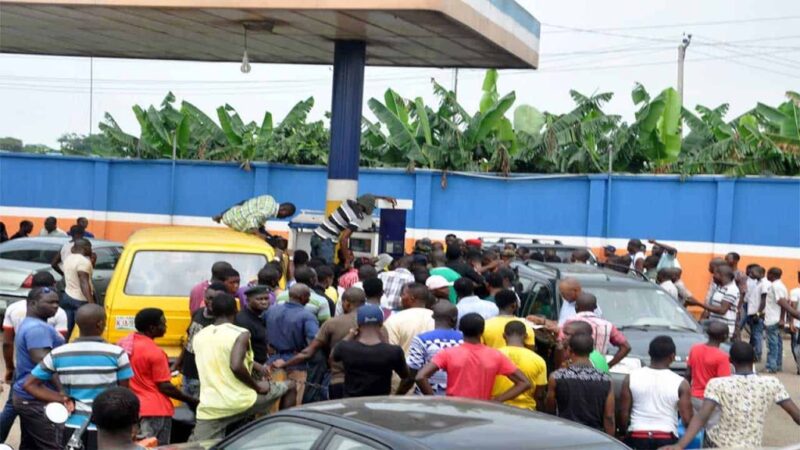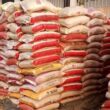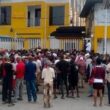The ongoing fuel scarcity in Nigeria has worsened, particularly affecting Lagos and Ogun states. Motorists face long waits at the few open filling stations, while many independent marketers have shut down due to the unavailability of fuel.
Across several states, including Abuja, Niger, and Nasarawa, the fuel shortage has led to significant disruption. In Abuja, long queues were seen at NNPC and Conoil stations, with motorists waiting for hours. Other stations like Salbas, Gegu Oil, and Eterna remained closed due to lack of fuel.
In Niger State, the situation mirrors that of the capital, with many filling stations shut down and massive queues forming at the few operational ones. This has created frustration and gridlock in major cities.
In Lagos and Ogun, only major marketers are dispensing fuel, leading to extensive queues at outlets. The scarcity has resulted in a sharp rise in transport fares, as independent marketers are unable to obtain supplies and have thus shut down operations.
At the NNPC retail outlet in Iyana-Woro, long lines of vehicles awaited petrol, which is sold at varying prices. In Lagos, NNPC outlets usually sell petrol at below N600 per liter, but in Abuja and nearby areas, the price is N617 per liter.
Several other stations, including Heyden at Iyana-Woro, MRS at Alapere, Conoil, TotalEnergies, and Mobil at Alausa Secretariat, also saw long queues, with prices ranging from N617 to N650 per liter. Drivers unwilling to wait in these long lines have turned to independent marketers, where prices range between N700 and N900 per liter.
The scarcity has also fueled black market activities, with some sellers charging as much as N1,500 per liter. Depot operators confirm that they are rationing petrol due to low supply, which they predict may take up to a week to stabilize.
“Nothing has changed as of Monday. The depot owners have started rationing the little they have. Depots are loading, but at snail speed, and this was occasioned by the paucity of product,” a depot operator told The PUNCH.
Concerns are rising that a planned hunger protest could further exacerbate the situation. “This scarcity will be with us till the weekend because supply dislocation takes a minimum of one week to get to normalcy. If the movement of trucks during protest is affected, it will get worse,” a source explained.
The Nigerian National Petroleum Company (NNPC) attributes the fuel shortage to issues in discharging operations of several vessels. Despite assurances from the NNPC that they are “working round the clock with all stakeholders to resolve the situation and restore normalcy in the operations,” many Nigerians remain doubtful.
“We have heard this before, and nothing has changed. The NNPC needs to do more to address this scarcity,” a motorist in Abuja lamented while waiting in line.
The scarcity’s impact extends beyond motorists to businesses, with many shutting down due to the inability to secure fuel. “We can’t operate without fuel, and it’s affecting our business,” a local business owner stated.










